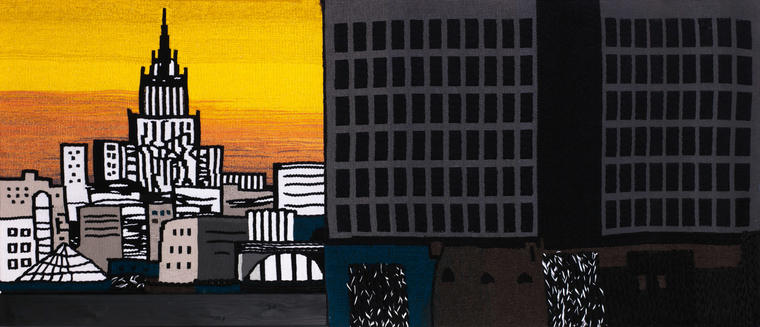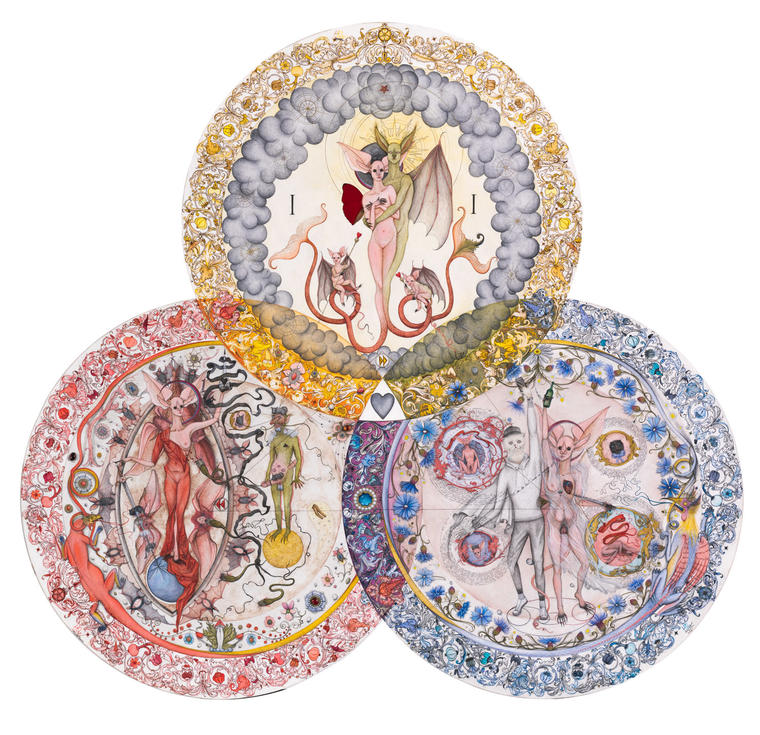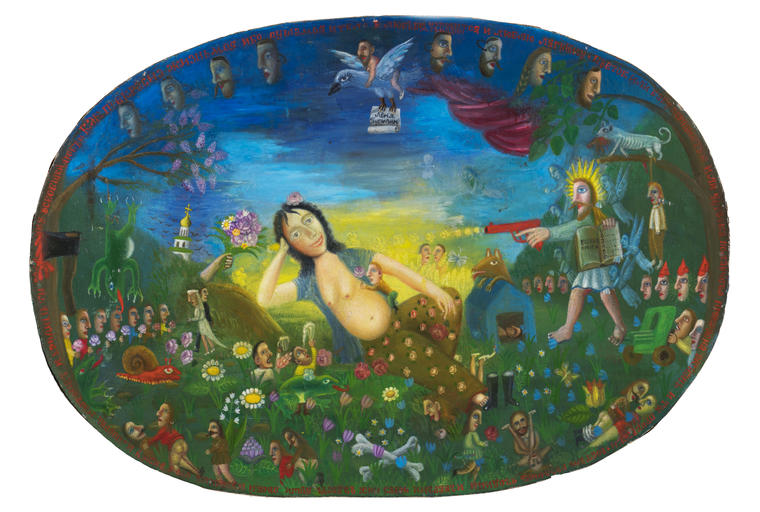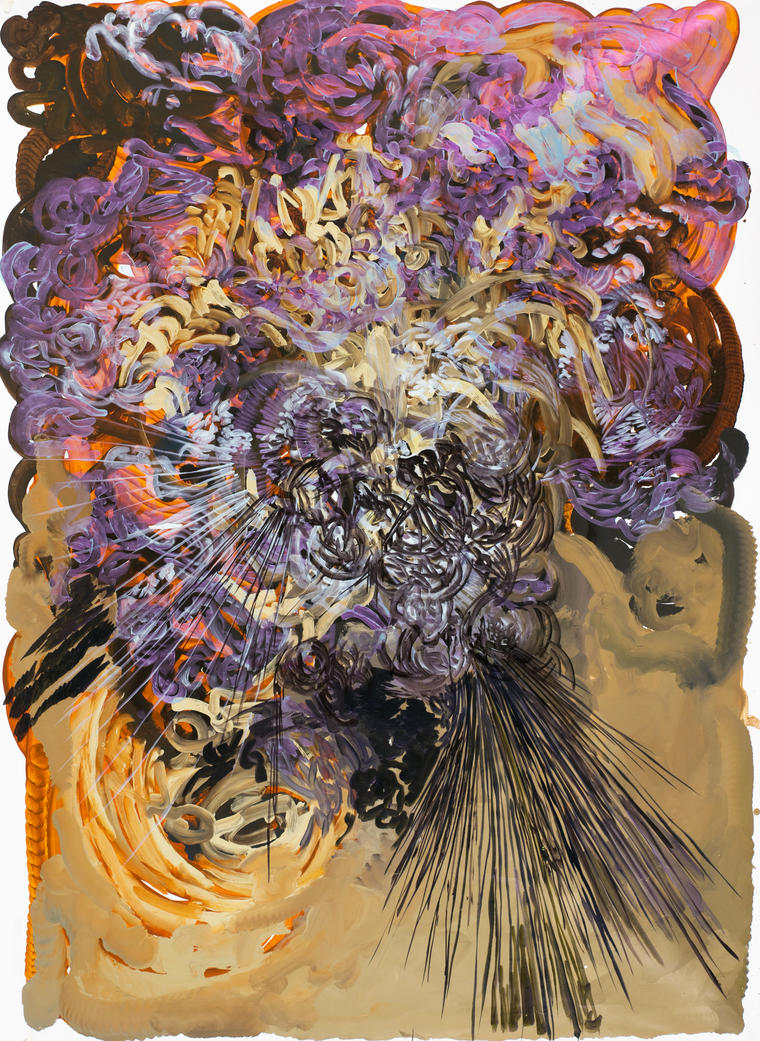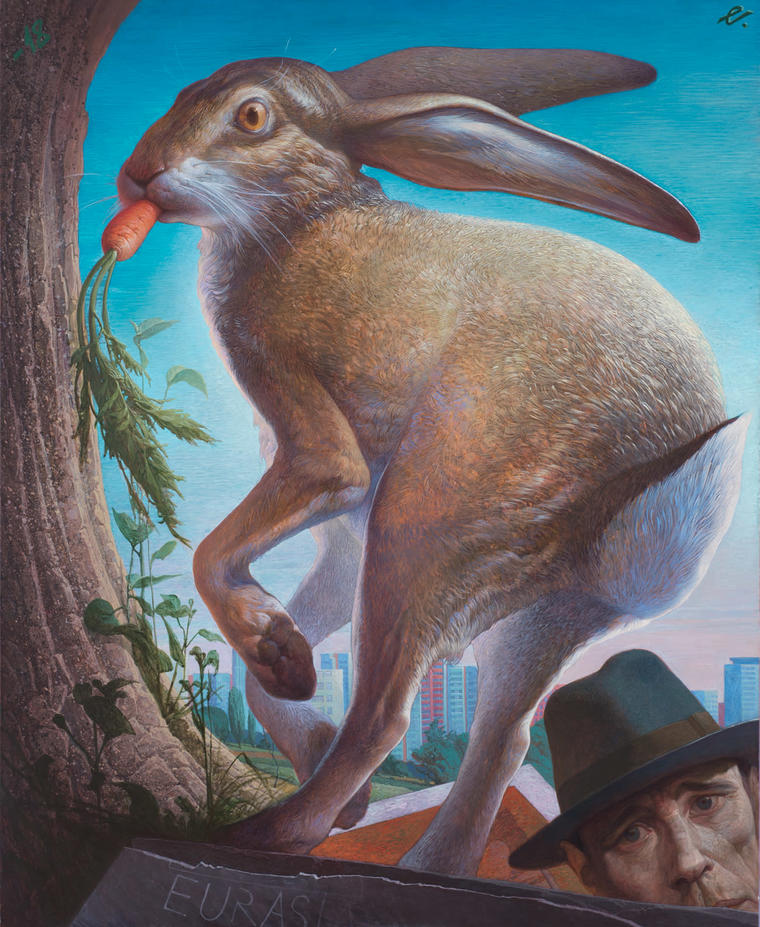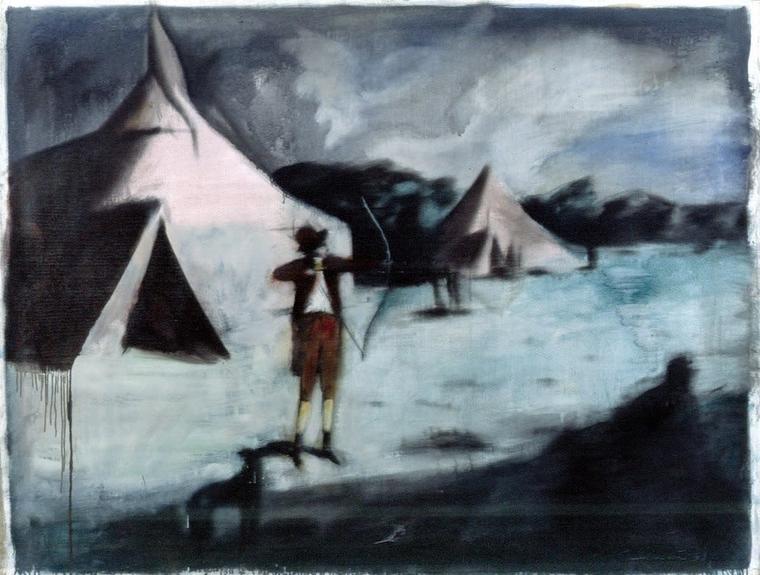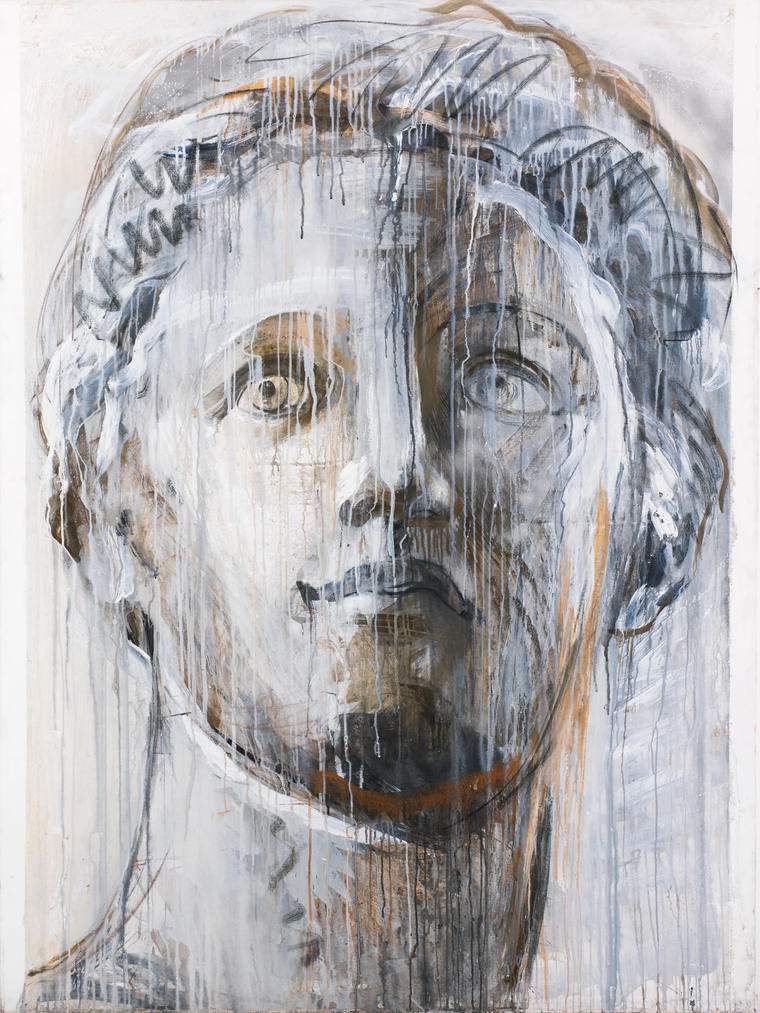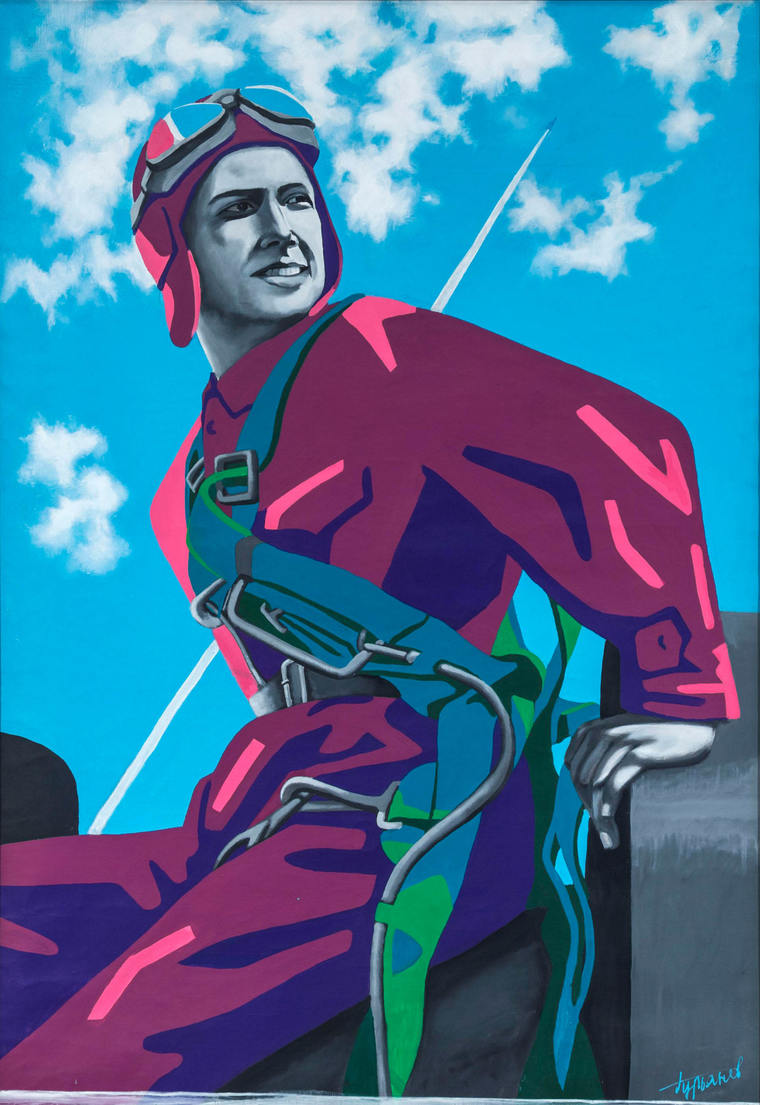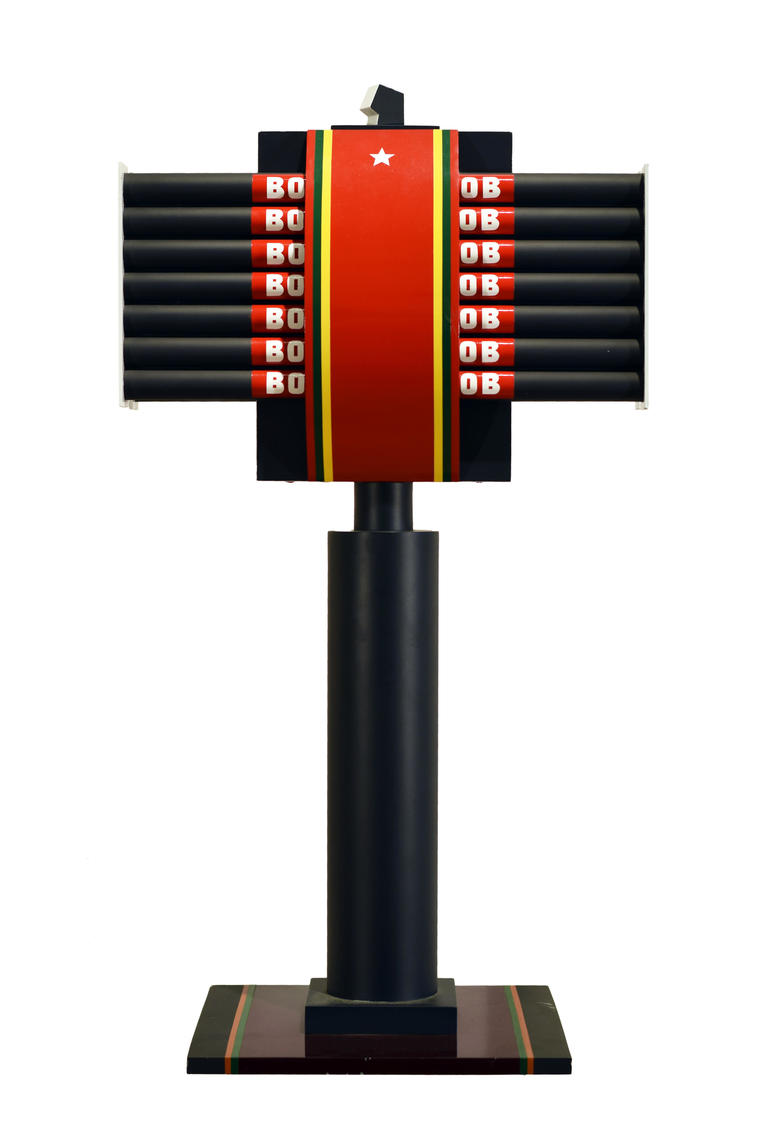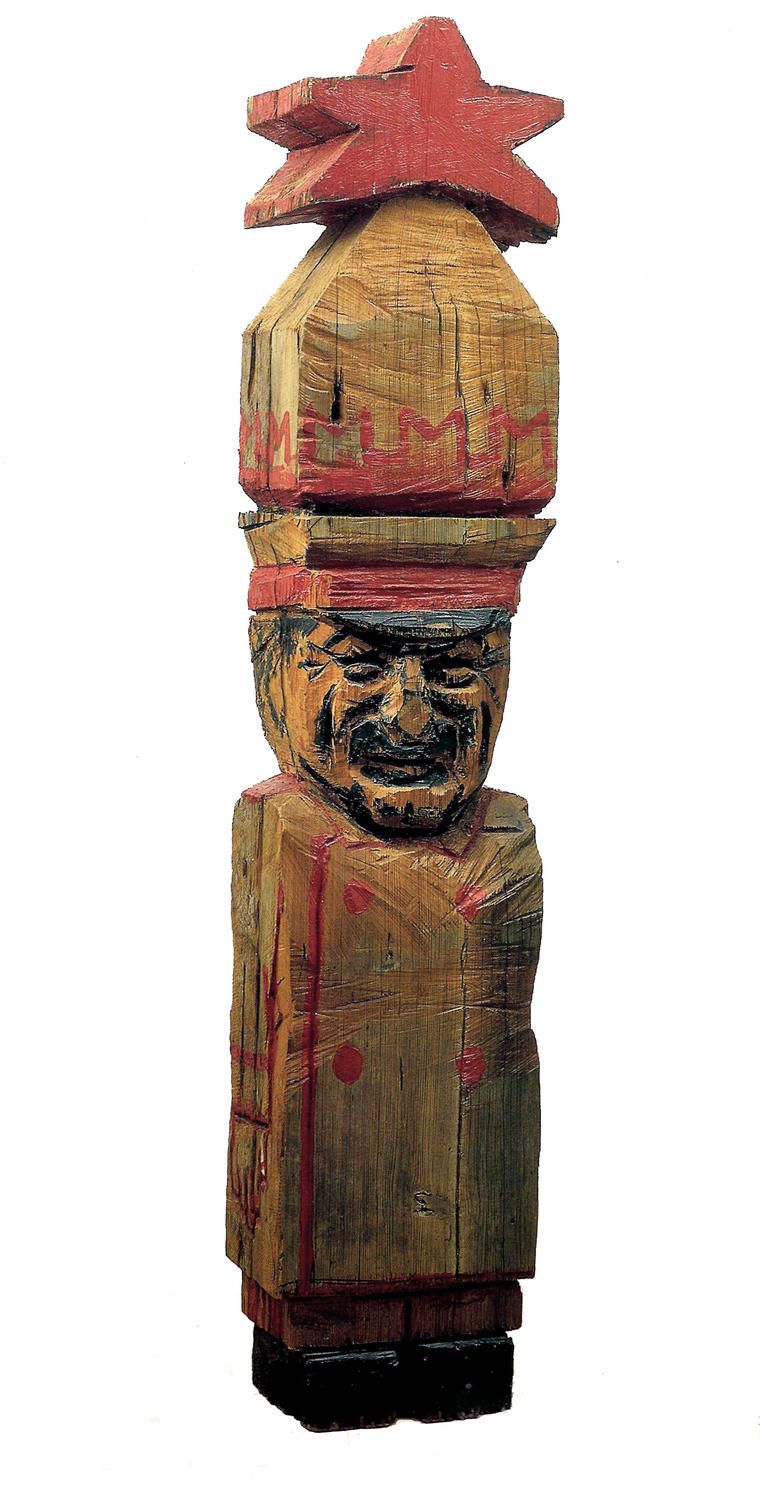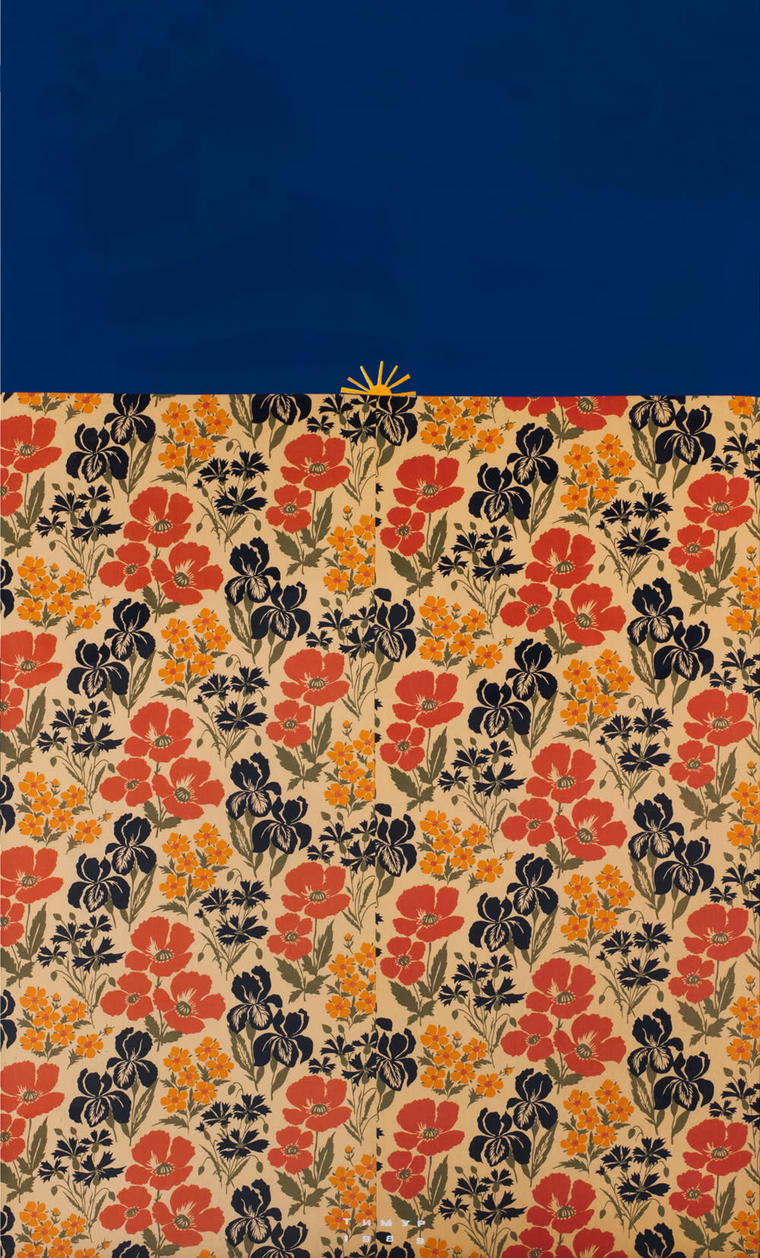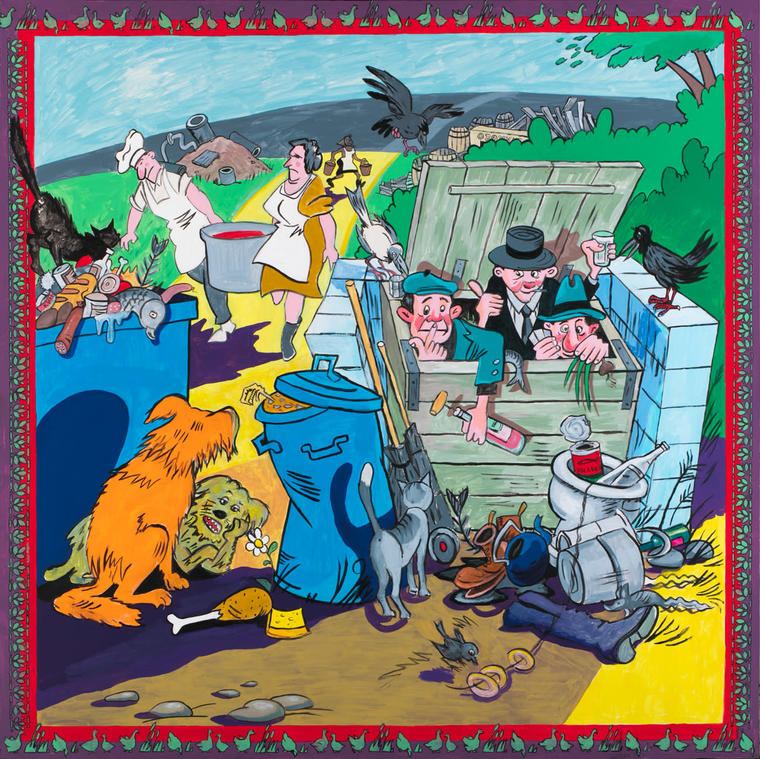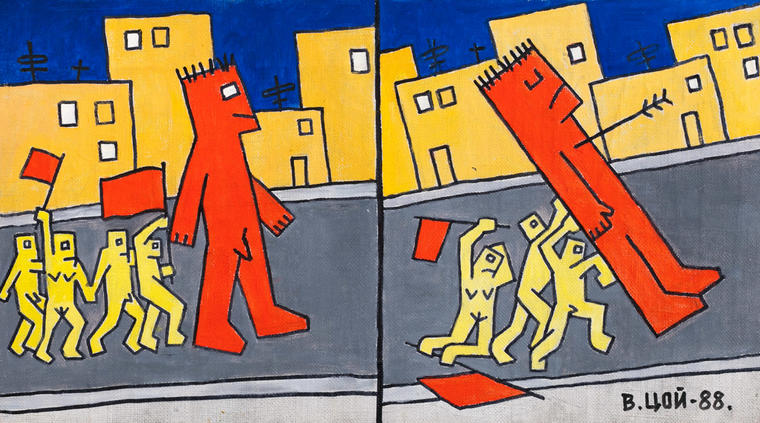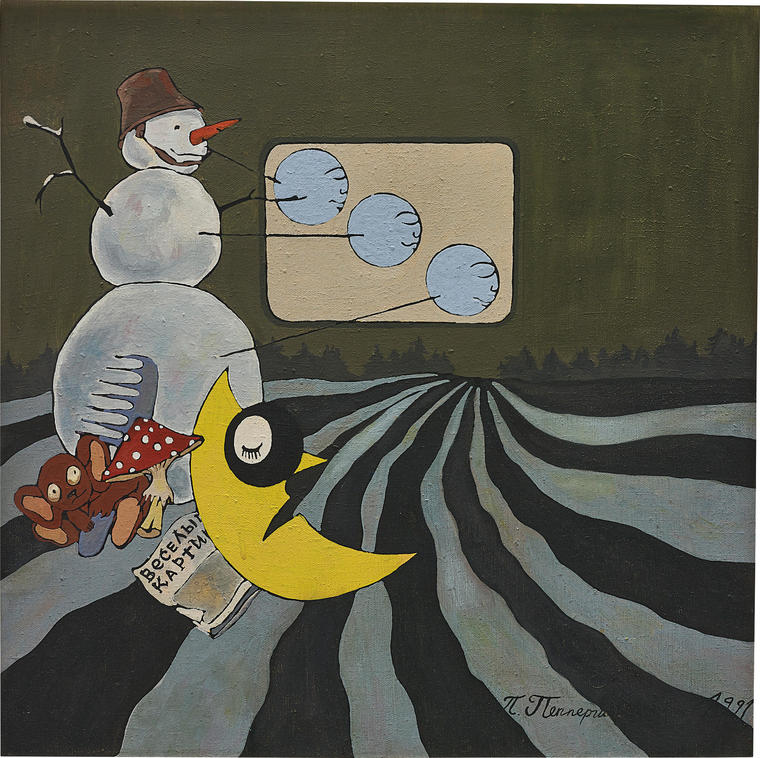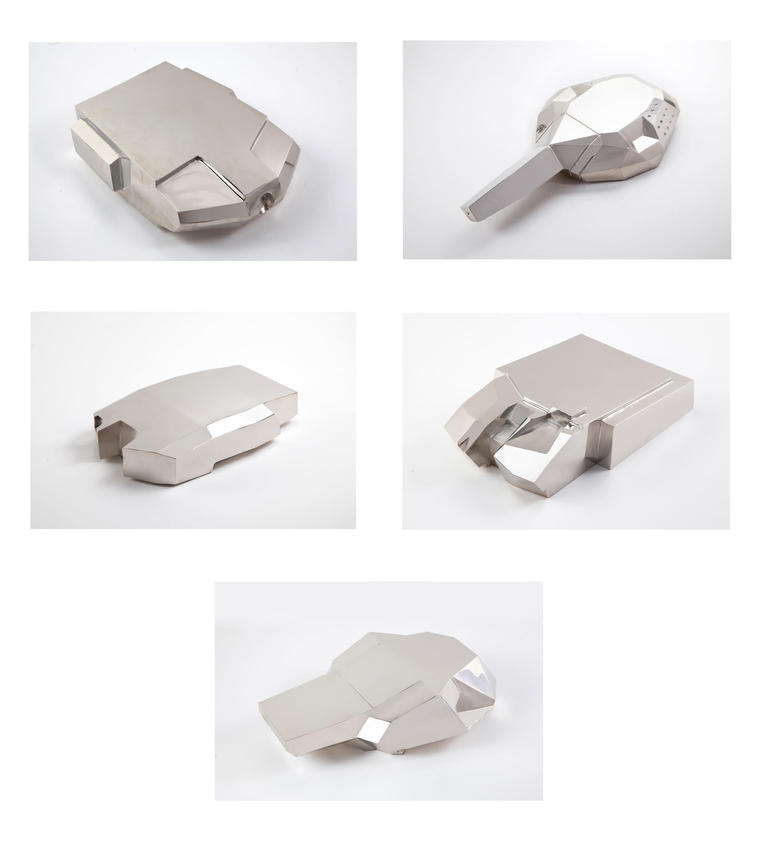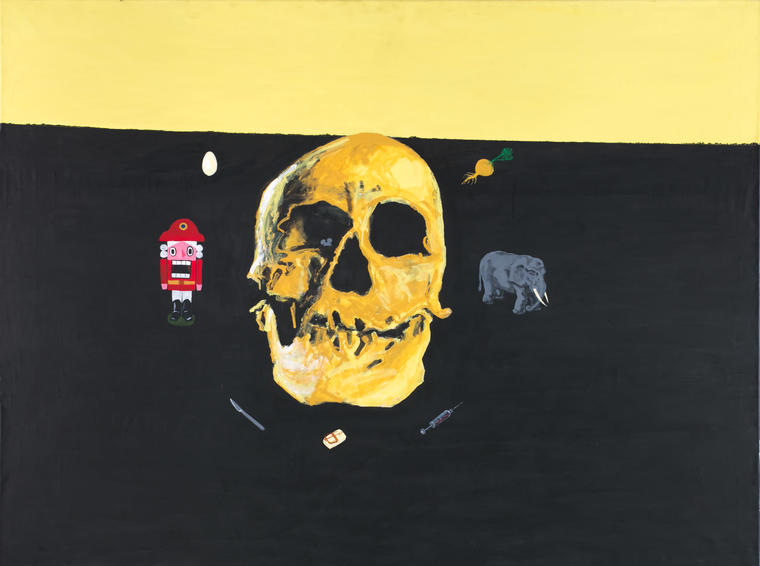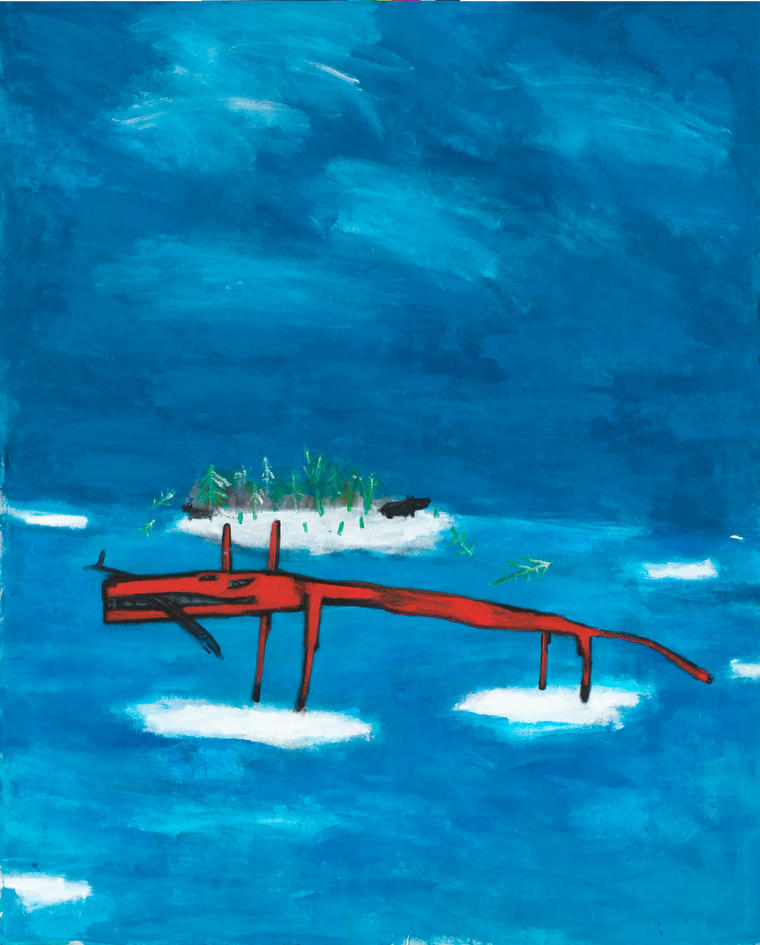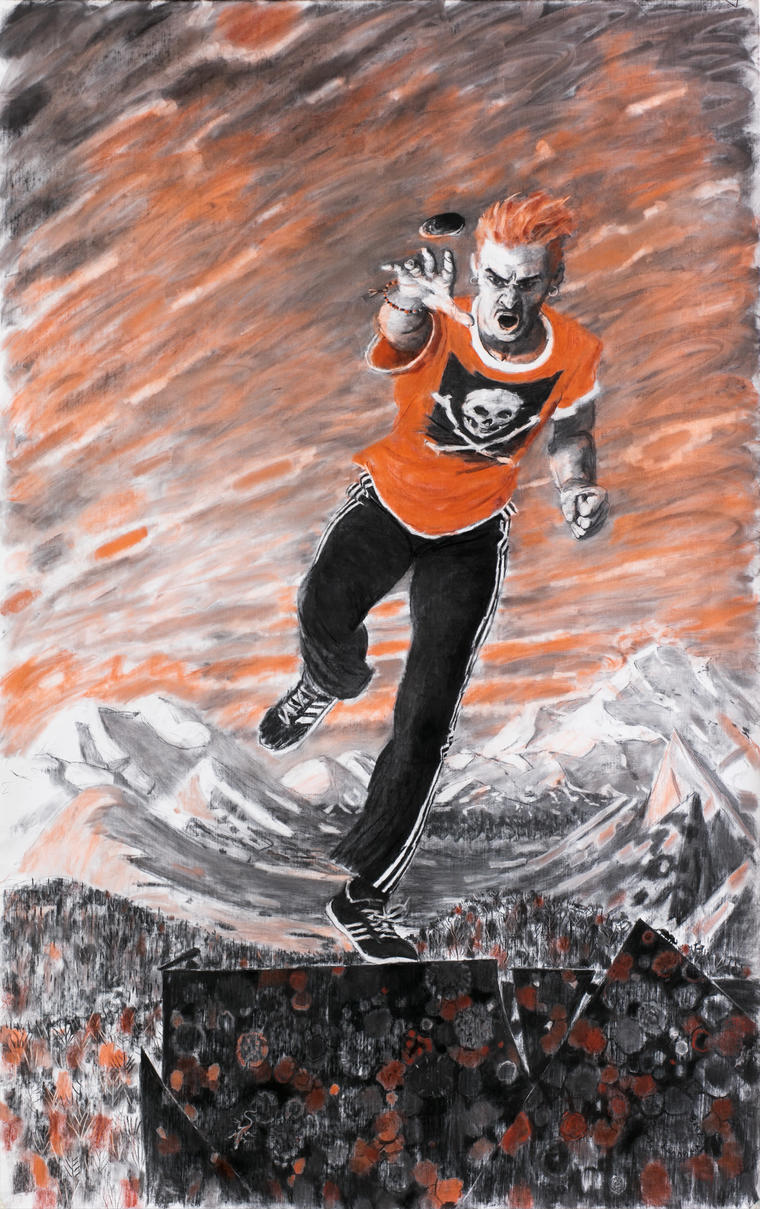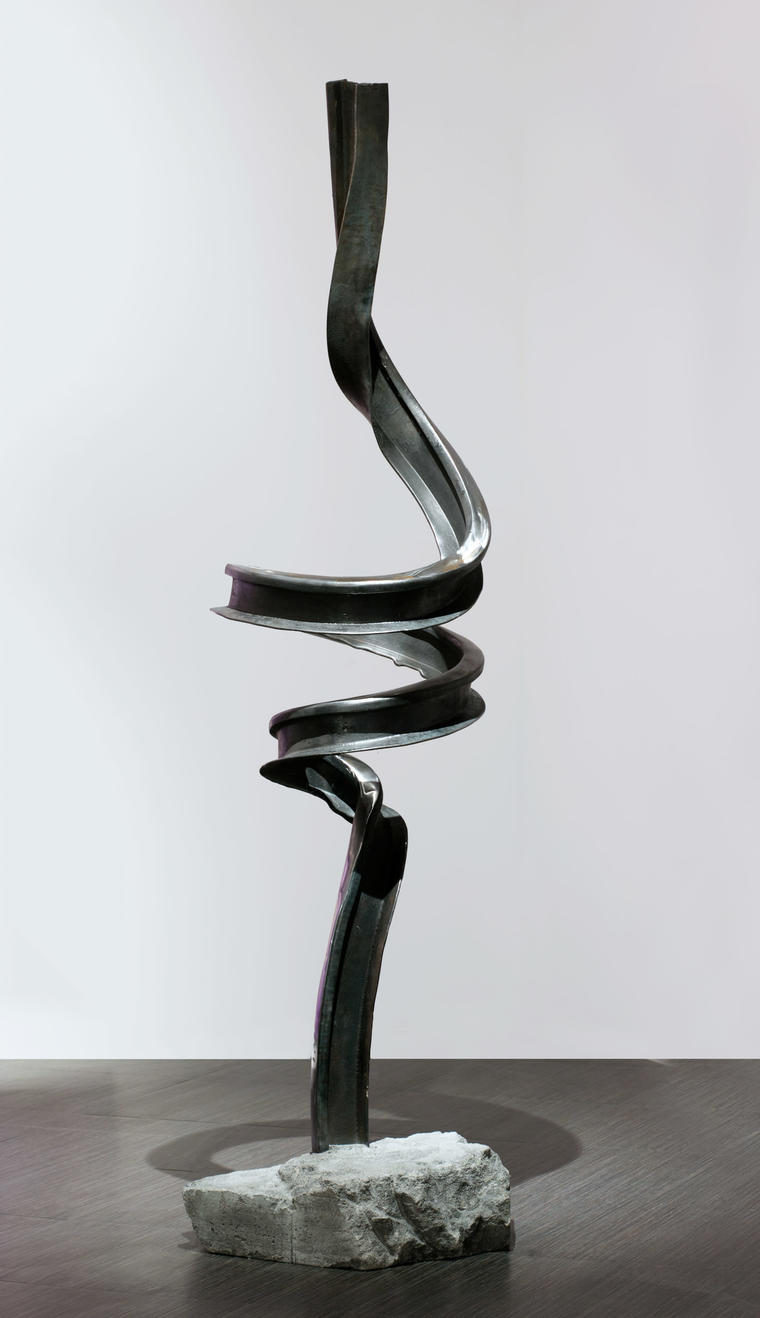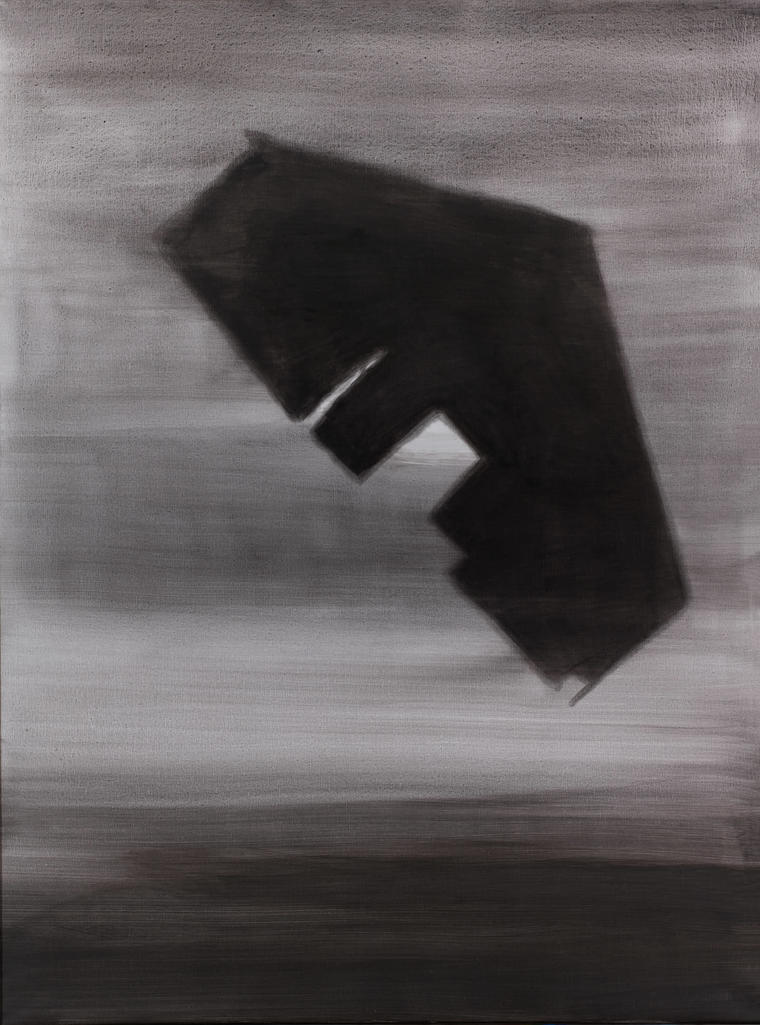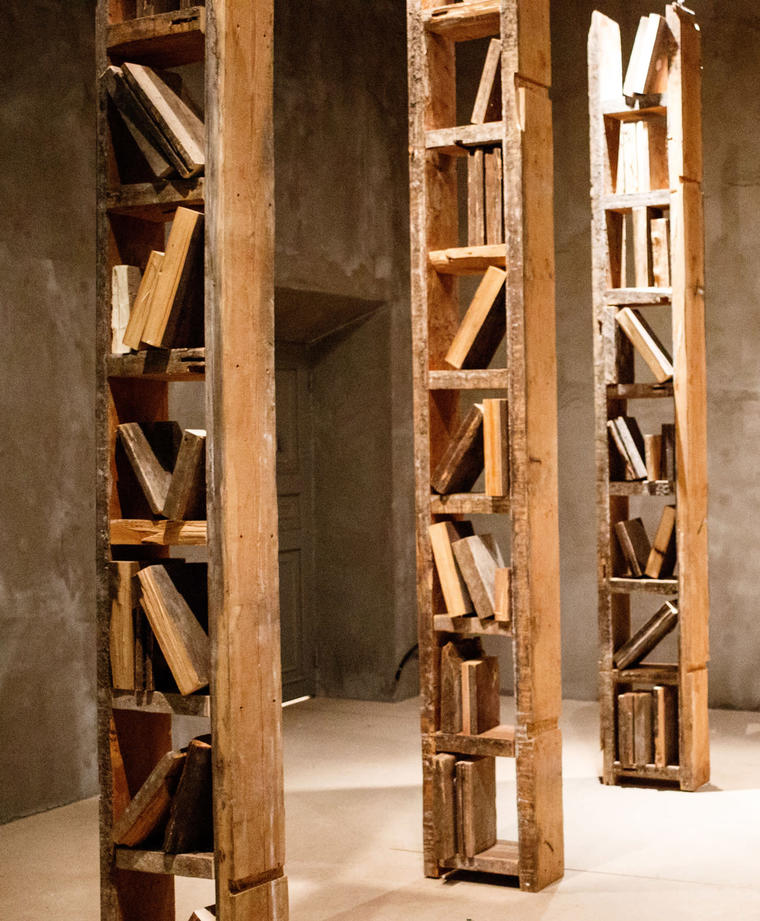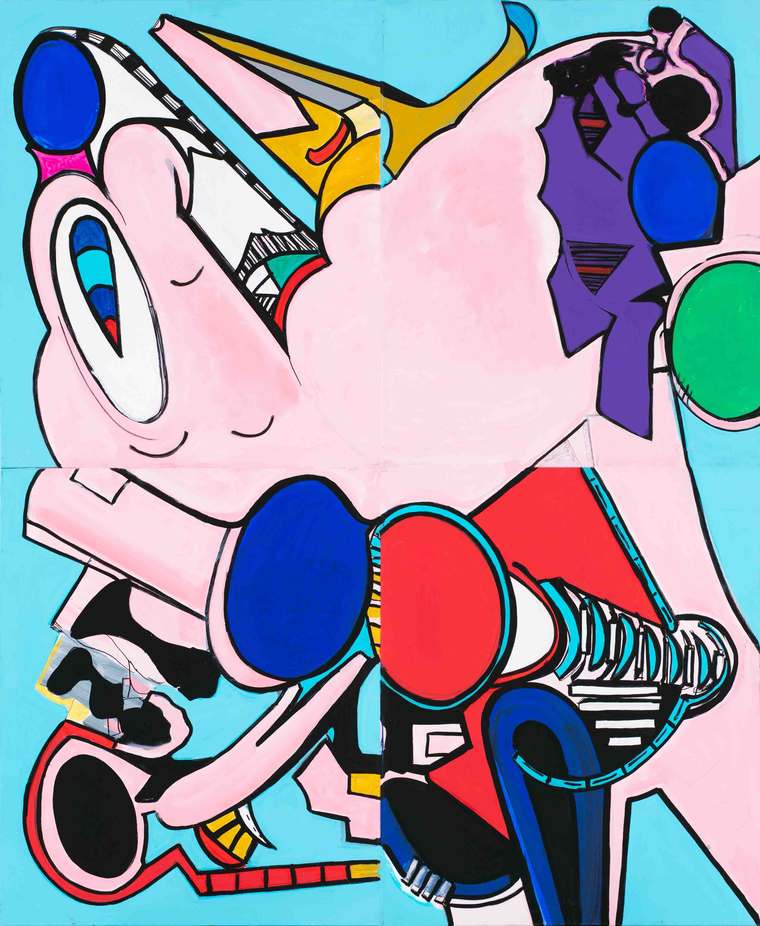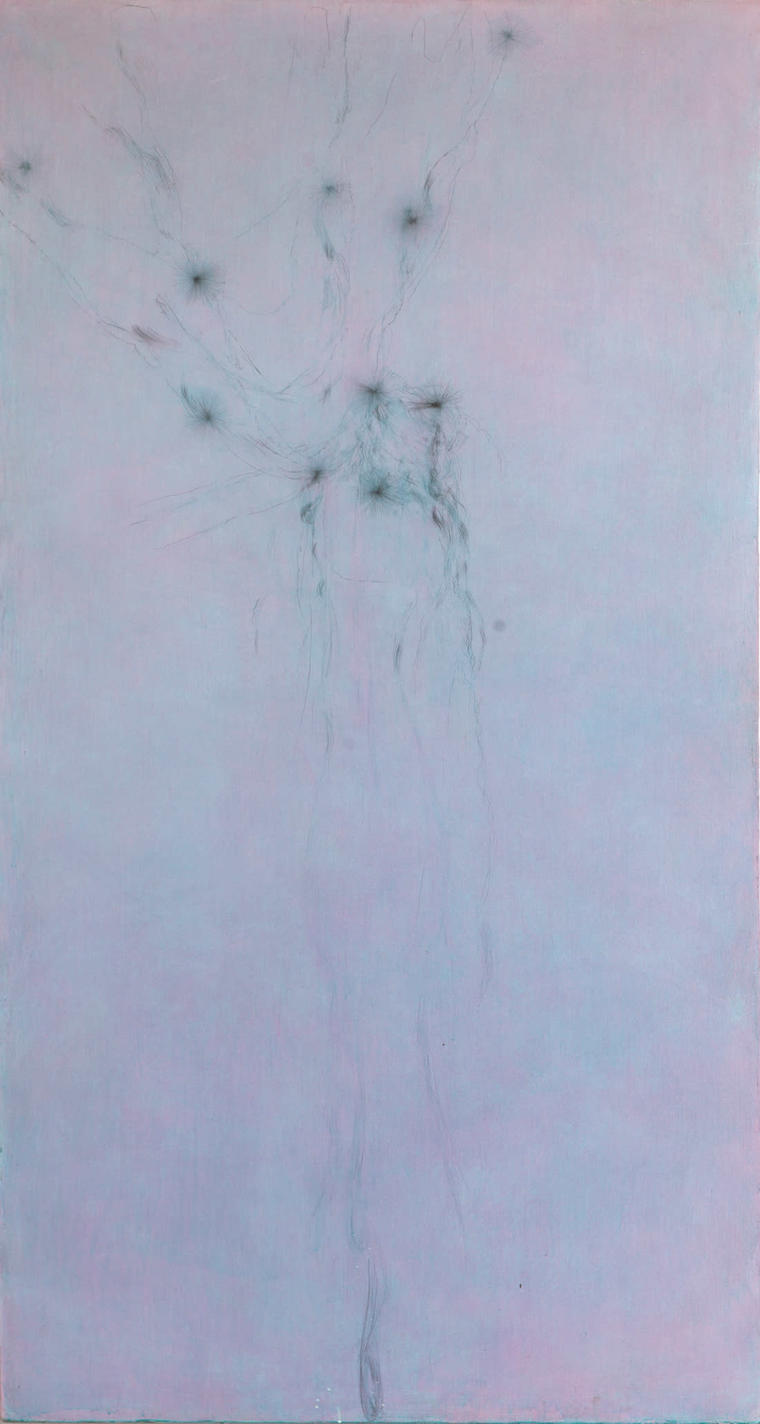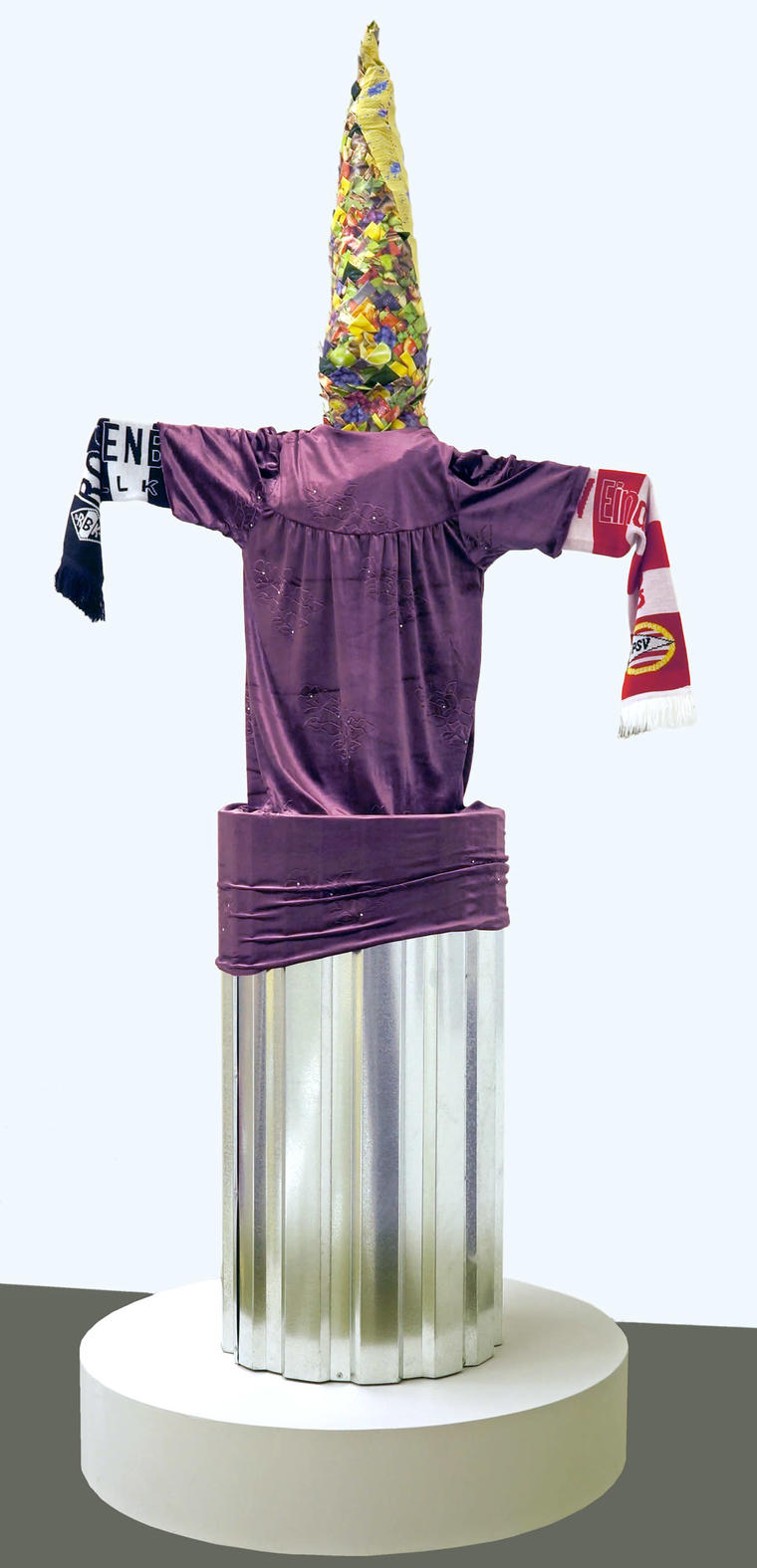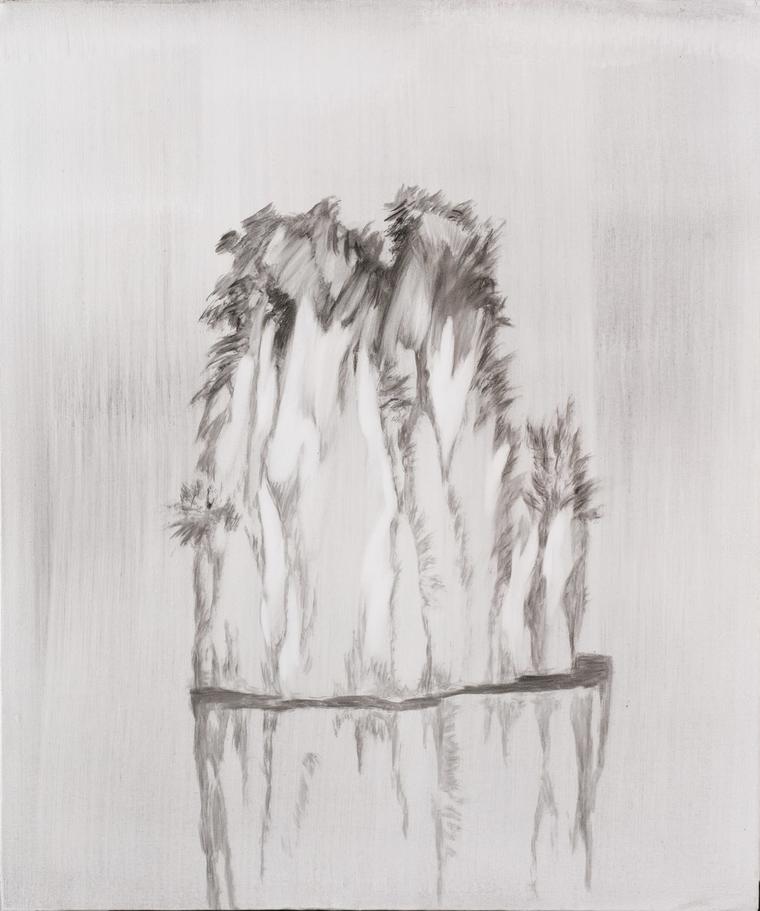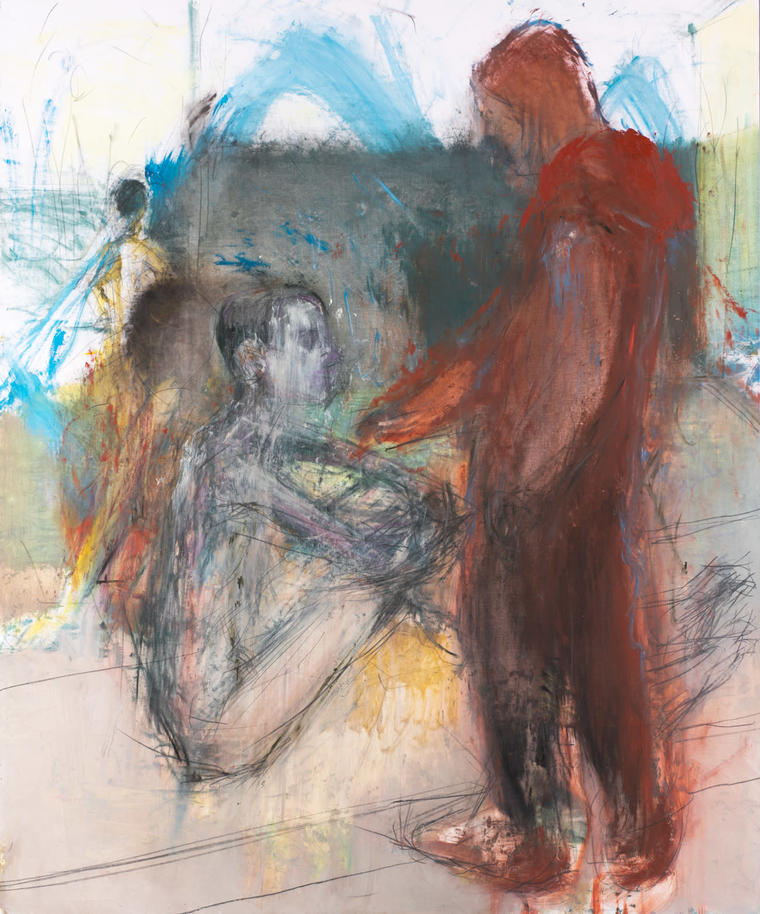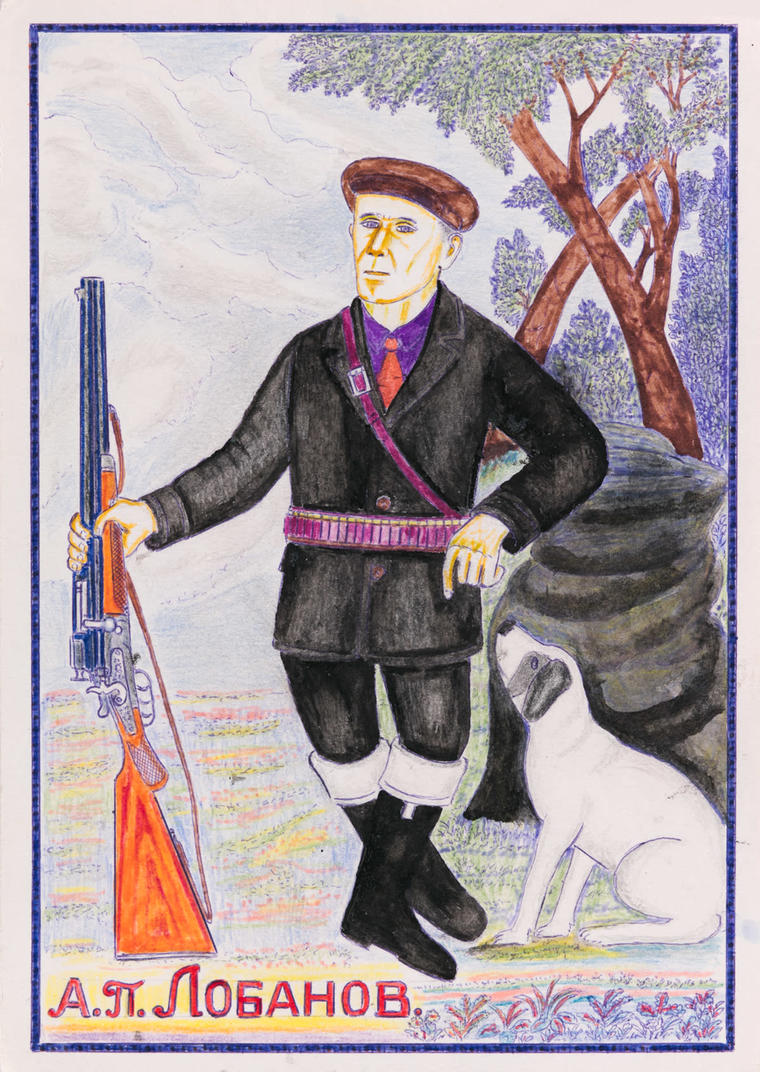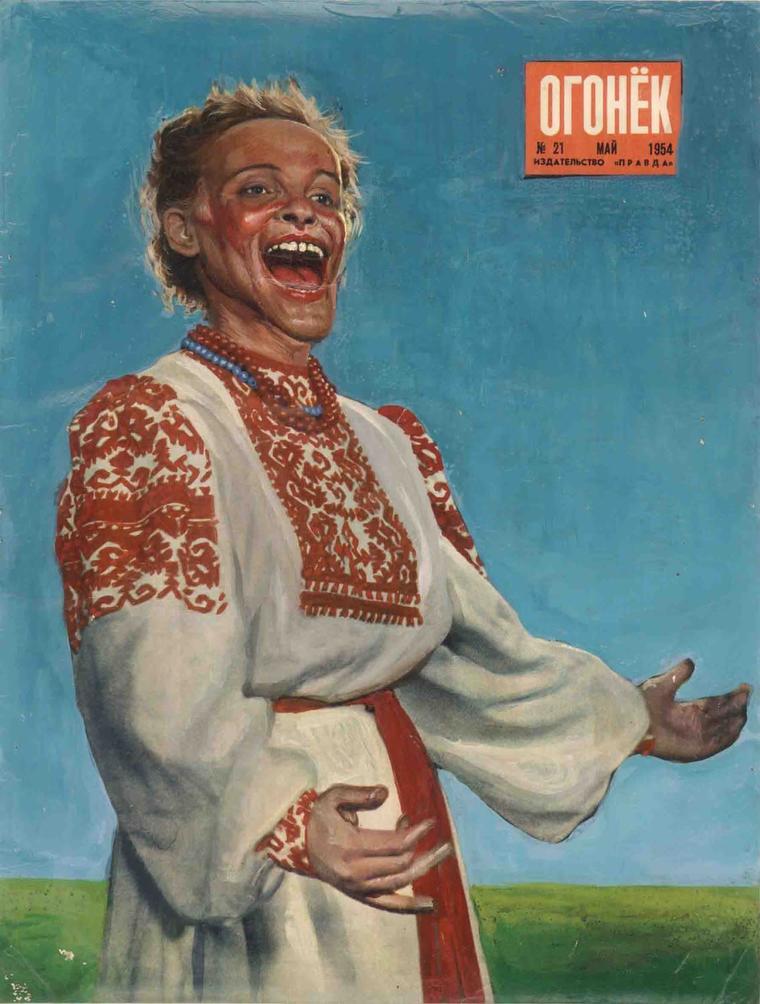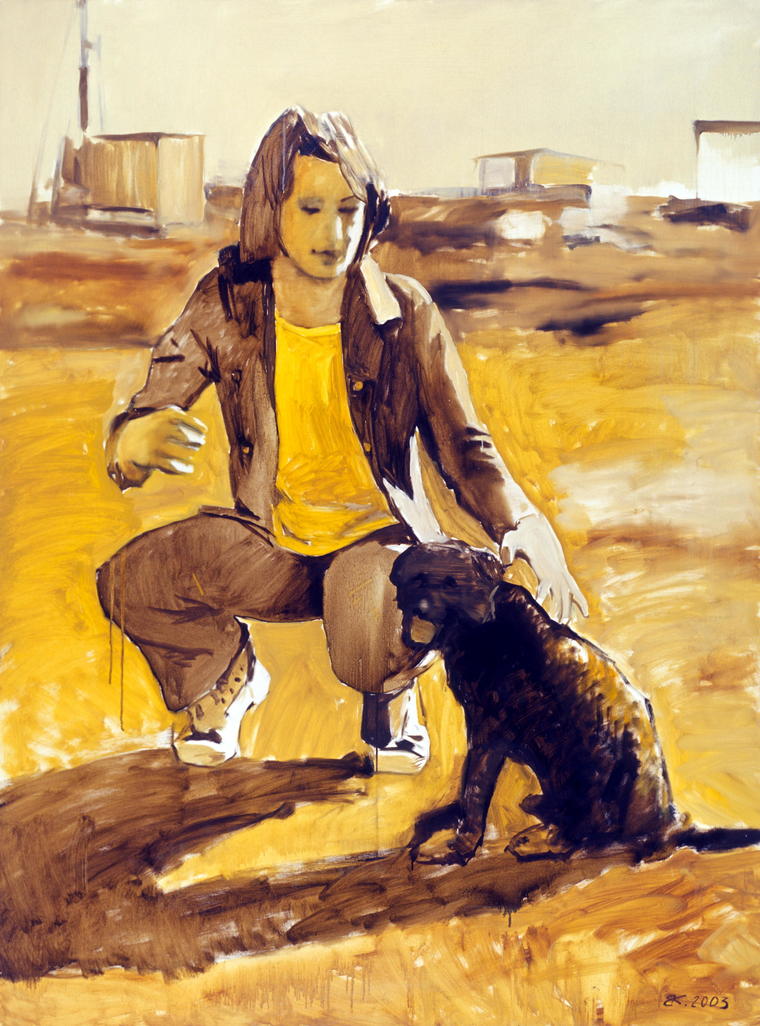Auction has ended
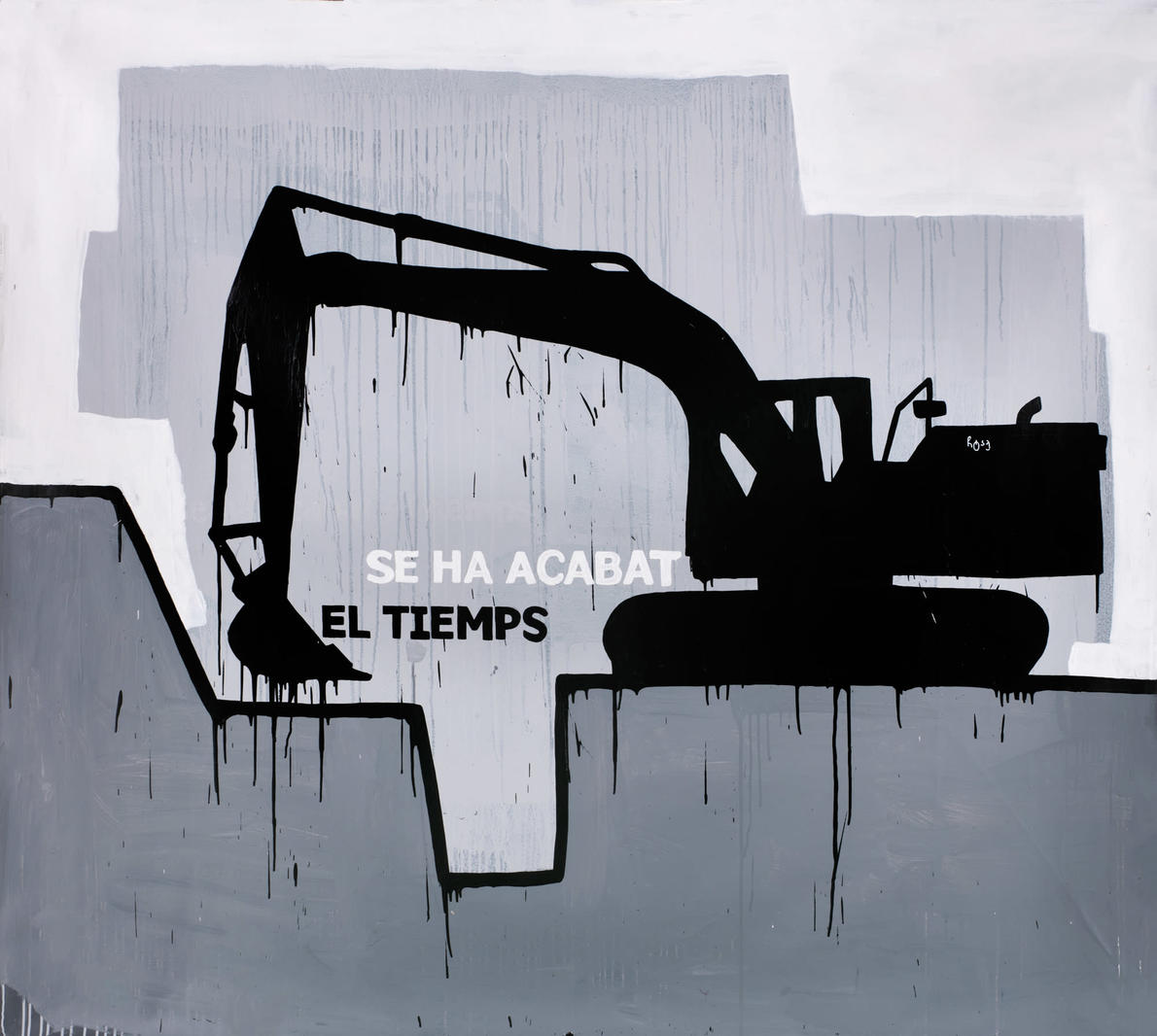
The perception of Chtak’s visual glossolalia is obviously different for those who understand words, and for those who do not understand. For those who do not know the language, words are a set of decorative elements; for those who know, they carry a message in themselves, and there seems to be no way back here, for, as Wittgenstein remarked, it is very difficult, knowing anything, to get distracted from this knowledge. Perhaps that's why Chtak prefers uncertainty: he rarely uses languages that are understood by all the typical viewers of his paintings, that is, English and Russian. Remain almost comprehensible, understood with an effort and yet not completely.
In fact, this situation in a concentrated form reproduces the usual problem of contemporary art in general. Is it, as they often say, a special language that requires preliminary development, long exercises and reading with a dictionary? Or you can get an aesthetic pleasure — and even more — without knowing this language, in some direct way? From a certain point of view, Chtak's painting are the art for those who do not understand the texts written on them. For those who understand, they are literature.
Ekaterina Degot
The story is such. One day my mother told me how she had witnessed a terrible sight: the excavator was digging a hole and laying out a mountain of skulls, like Vereshchagin's. It, apparently, then came across a cemetery near the church, which they demolished. It rained and washed the skulls and bones from the mud. Time has passed. This image had remembered.
Valery Chtak
